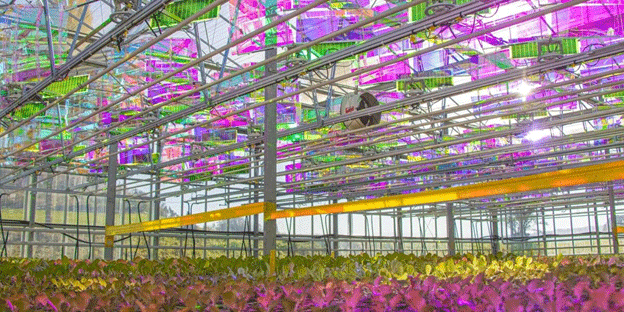The agriculture industry is under mounting pressure to reduce CO2 emissions and adopt sustainable practices. Greenhouses, essential for high-yield crop production, are energy-intensive and often reliant on fossil fuels. Recognizing this challenge, Voltiris has developed a unique solar energy system tailored for greenhouses, enabling farmers to generate power without compromising crop yields.
Challenges of Conventional Solar Panels in Greenhouses
Traditional solar panels block sunlight, creating shade that significantly reduces crop growth. In greenhouses, even a 1% reduction in light can lead to a 1% drop in yield—a tradeoff that most farmers cannot afford.
To address this, Voltiris designed photovoltaic modules that absorb specific wavelengths of sunlight while allowing sufficient light penetration for plant growth. Installed in a chessboard pattern, these bifacial panels maximize energy capture without excessive shading, achieving a peak power output of 145 W/m².
Pilot Projects and Promising Results
Voltiris has already deployed 700 modules across 12 greenhouse projects, including Eschbach Gemüsebau, a vegetable farm in Switzerland. The results have been promising:
- Energy Independence: Greenhouses equipped with Voltiris technology can produce their electricity, reducing reliance on external energy sources.
- Environmental Impact: By generating clean energy, these systems help lower greenhouse gas emissions, aligning with global sustainability goals.
- Crop Productivity: The specialized design ensures crops receive optimal light, maintaining yields while harnessing solar power.
Nicolas Weber, CEO and co-founder of Voltiris, emphasized the potential of their technology to transform thousands of hectares of greenhouses into solar-powered farms, contributing to a greener agricultural sector.
Scaling the Green Energy Transition
Voltiris aims to scale its operations by converting more greenhouses into agrivoltaic systems. This approach not only addresses environmental concerns but also offers economic benefits by reducing energy costs for farmers.
The integration of solar energy into greenhouses demonstrates the potential of technology-driven solutions in agriculture, paving the way for sustainable, efficient, and profitable farming practices.
The Voltiris solar energy system represents a significant leap forward in sustainable agriculture. By combining energy production with crop cultivation, it offers a viable solution to greenhouse farming challenges, including high energy consumption and CO2 emissions. As the technology expands, it could play a critical role in achieving global agricultural sustainability goals.








